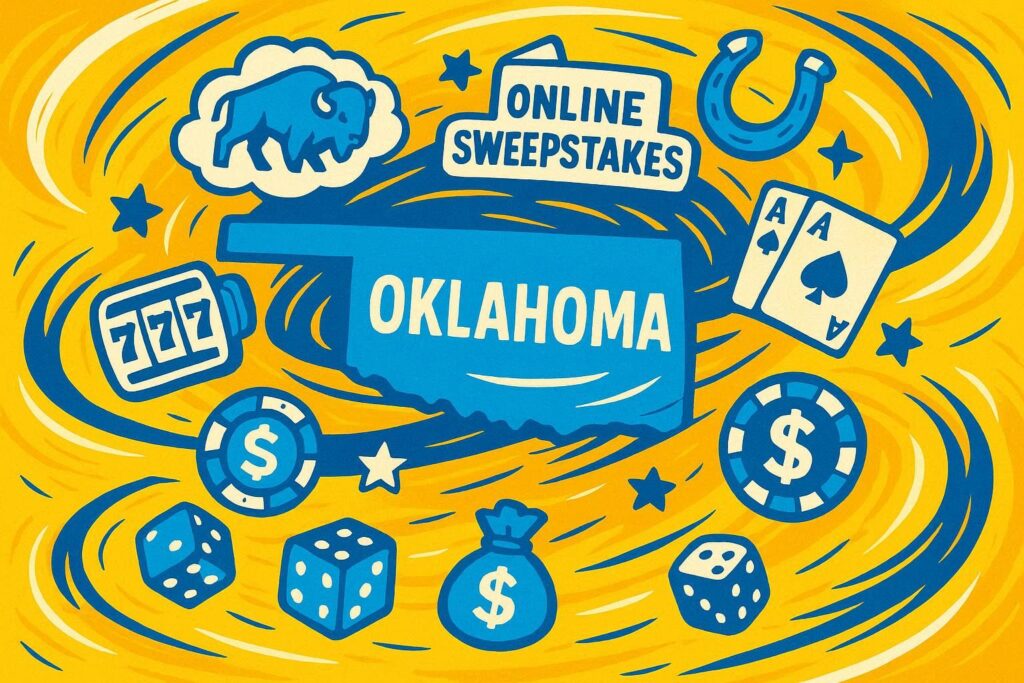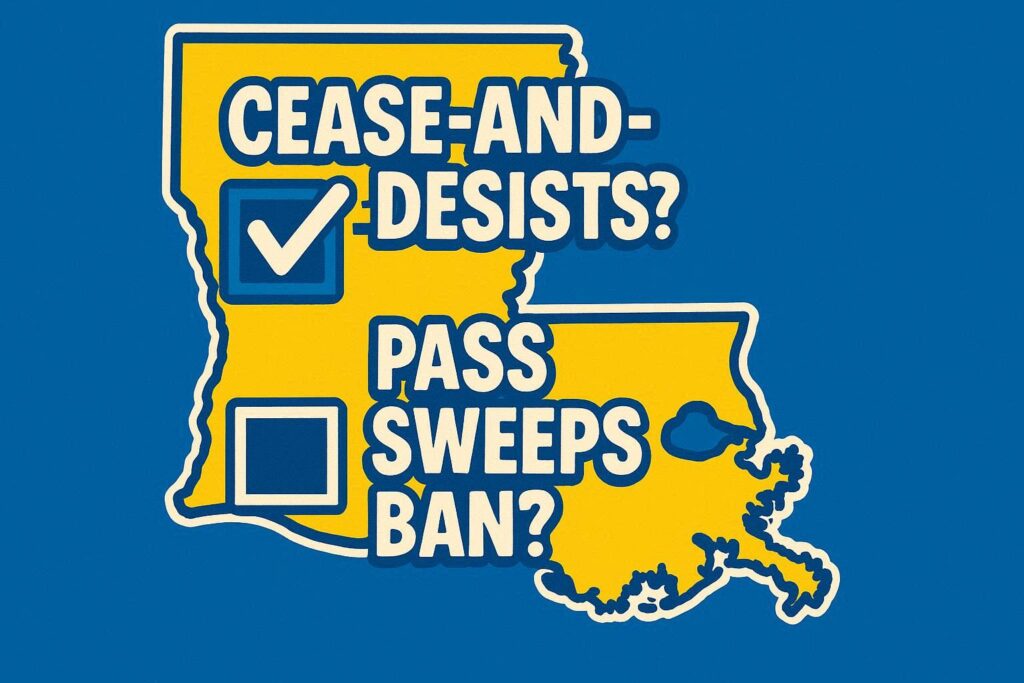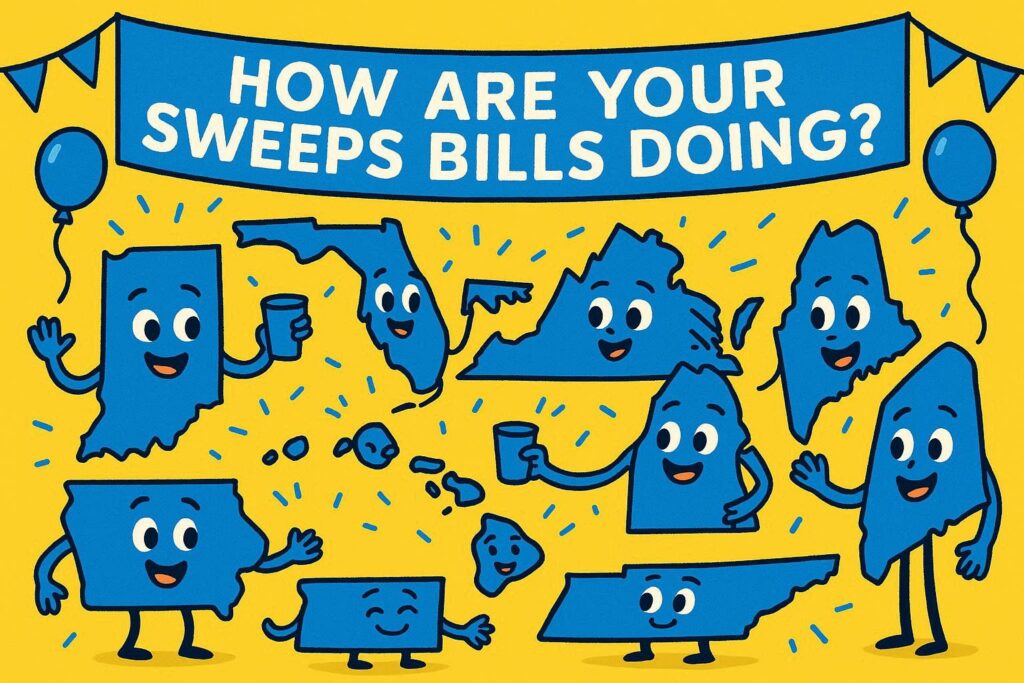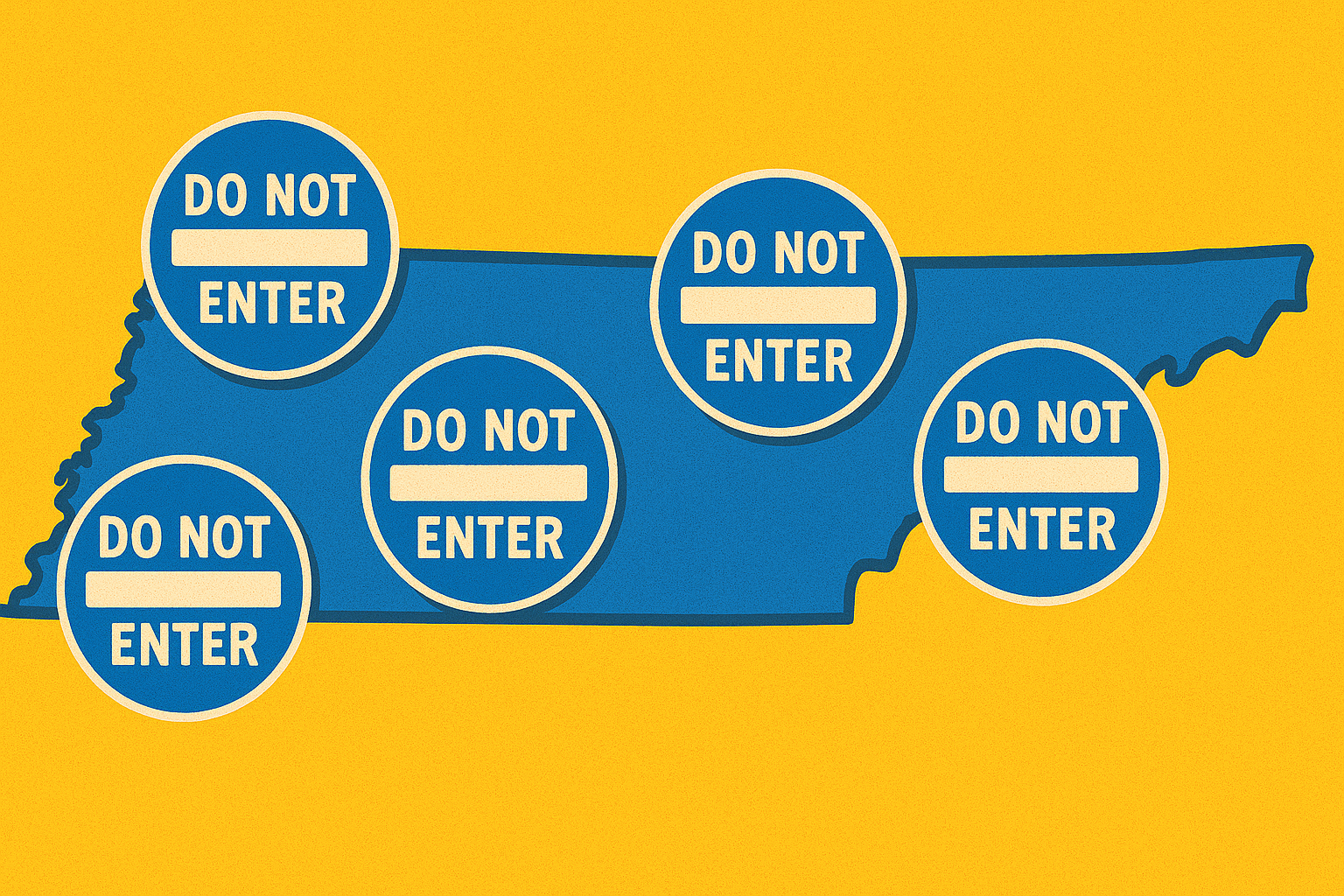As of this month, officially, any sweepstakes casino operating in Montana or Connecticut is doing so illegally.
That’s because Montana’s bill banning sweeps casinos, Senate Bill 555, which was signed by Gov. Greg Gianforte in May, had an effective date of Oct. 1, 2025. And Connecticut’s bill, Senate Bill 1235, also had an effective date of Oct. 1, 2025, for its language specifically related to sweepstakes gaming.
At the time, Montana was the first state to pass a sweeps ban bill in the 2025 legislative session. Since then, New York, New Jersey, Connecticut, and most recently California have also passed similar bills.
Vague and direct language — both get the job done
Montana’s bill was unique among the states considering legislation outlawing sweepstakes casinos this year in the sense that, really, it wasn’t deemed a sweepstakes ban bill.
In fact, the word “sweepstakes” doesn’t appear once in the language of SB555.
By contrast, New York’s bill contains the word “sweepstakes” eight times.
Instead, Montana’s SB555 uses vague-enough language that most certainly encompasses sweepstakes gaming sites. The language contained broad updates to the state’s gambling statutes — and one key change stood out for sweeps operators.
The bill amended the definition of “internet gambling” to make it clear that sweeps casinos fall under that category.
Here’s the new language:
“The term [internet gambling] includes online casinos, by whatever name known, which constitute internet gambling and therefore are prohibited. This includes but is not limited to any platform, website, or application that knowingly transmits or receives gambling information, allows consumers to place a bet or wager using any form of currency, and makes payouts of any form of currency.”
That final phrase — “any form of currency” — does a lot of heavy lifting. It’s broad enough to encompass nearly every possible medium of exchange, from cryptocurrency to Sweeps Coins.
Connecticut’s SB1235, meanwhile, contained much more direct language. It clearly stipulated that it violates state law to “conduct or promote a sweepstakes or a promotional drawing” that “allows or facilitates participation in any real or simulated online casino gaming or sports wagering.” Translation: Bye-bye, sweeps casinos and sportsbooks.
Many notable sweeps brands, including VGW properties Chumba Casino, LuckyLand Slots, and Global Poker, exited Montana and Connecticut before their bills passed. In the months since, most reputable operators have also shut down their sweeps games in Montana and Connecticut.
How about Gold Coin games?
Regarding the vague language in Montana’s bill …
Because Gold Coins used in the free-play versions of sweeps casinos can’t be redeemed for real money, SB555 likely doesn’t apply to social casinos. In fact, the bill specifically carves out an exception for “online casinos that do not allow the use of currency of any kind” — and, really, social casinos are the only platforms that fit that description.
The fact that several sweepstakes casino operators, including all three VGW platforms, still offer social Gold Coin games in Montana seems to give merit to the notion that SB555 doesn’t apply to social casinos.
Checking in on other states that passed bills
Of the three other sweeps ban bills to pass in 2025, only one other is also in effect.
New Jersey’s legislation, Assembly Bill 5447, took effect the day Gov. Phil Murphy signed it — Aug. 15.
In New York, Gov. Kathy Hochul hasn’t yet made a decision on Sen. Joseph Addabbo’s Senate Bill 5935. She has until the end of the year. The bill, if approved, has an immediate effective date. So that’s part of the reason why a lot of sweeps operators have already left New York — because, theoretically, Hochul could sign the bill any day, and sweeps casinos don’t want to be caught operating illegally, even for just a day.
In California, Gov. Gavin Newsom has not yet made his decision on Assembly Bill 831, which passed on Sept. 12. He has until Oct. 12 to either sign the bill into law, veto it, or take no action — which would have the same effect as signing it. If approved, AB831 would become law on Jan. 1, 2026.
Most observers in the gaming world doubt Newsom will veto the bill, while one tribal leader, Victor Rocha, chairman of the Indian Gaming Association, believes Newsom will simply not sign the bill — which will still cause it to officially become law.
Still, some think a veto can’t be completely ruled out. Bill Pascrell III, a prominent gambling attorney and lobbyist, told Sweepsy that he believes Newsom “appreciates the potential” of a regulated sweepstakes framework in California and may take time to consider feedback from industry groups like the Social Gaming Leadership Alliance before making a final call.
The SGLA is currently lobbying both Newsom’s and Hochul’s offices to veto the bills in their respective states.
It has launched online petition campaigns in both states, designed to facilitate contact between players in California and New York and their governors via email, phone calls, and X posts.
As of Thursday morning, the SGLA’s campaign in California had created 10,315 actions taken — meaning Newsom has been contacted that many times as a result of the petition.
Also as of Thursday morning, the SGLA’s New York campaign had created 2,228 actions.









